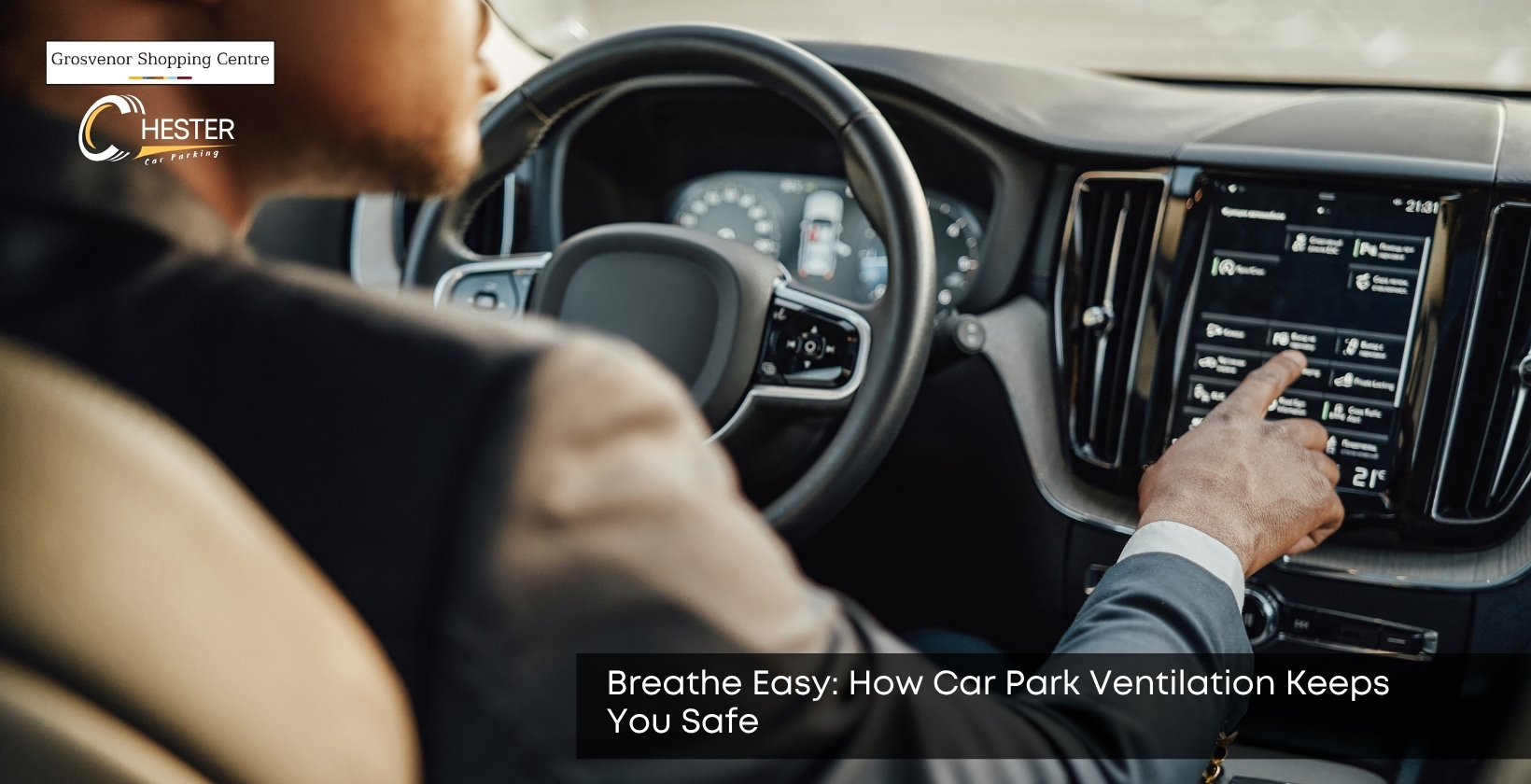Breathe Easy: How Car Park Ventilation Keeps You Safe
Have you ever wondered what happens to the air you breathe in a car park? Most drivers do not think twice about it, but enclosed parking areas can collect harmful fumes if not properly ventilated. A good car park ventilation system clears the air, reduces health risks, and improves overall safety. Whether you own a business, manage a public garage, or use one every day, the design of a car parking ventilation system matters more than you might think. At Car Parking Chester, we understand the importance of this often-overlooked feature in ensuring your safety and comfort. But why is ventilation such a big deal in the first place?
Why Is Ventilation Important in Car Parks?
Ventilation is important in car parks because it removes harmful gases and enhances air quality for both drivers and pedestrians. Without it, exhaust fumes can accumulate quickly, especially in enclosed or basement areas. A proper car park ventilation system reduces the risk of breathing problems and ensures safer access for everyone. At Car Parking Chester, we understand the importance of fresh air when navigating tight spaces. This raises an important concern about the types of risks associated with poorly ventilated areas.
What Are the Main Air Quality Risks in Enclosed Car Parks?
The primary air quality risks in enclosed car parks are carbon monoxide, nitrogen dioxide, and fine particles emitted by engines and tyres. These pollutants can accumulate to dangerous levels if the car park’s ventilation system is weak or faulty. In areas with limited airflow, these gases may linger and negatively impact your health. Car Parking Chester has worked on sites where poor ventilation needed immediate upgrades to meet safety levels. The key contributor to these risks comes directly from the vehicles themselves.
How Do Car Engines Affect the Air You Breathe?
Car engines affect the air you breathe by releasing toxic gases during ignition and idling. Even short stays in car parks can expose people to high levels of carbon monoxide. With older engines or diesel vehicles, the risk increases, especially during busy periods. This is why a well-designed car parking ventilation system is crucial. Our clients at Car Parking Chester often ask us what kind of systems should be installed to effectively solve this problem.
What Types of Ventilation Systems Are Used in Car Parks?
The most common types of car park ventilation systems are natural, mechanical, or hybrid. Natural ventilation utilises open sides and airflow, whereas mechanical systems employ car park ventilation fans to draw air in and expel fumes. A hybrid system combines both for greater control. The best choice depends on the structure and usage of the car park. At Car Parking Chester, we help assess and match car park ventilation designs to both new and existing structures. But is skipping on ventilation ever a health risk?
Can Poor Ventilation Lead to Serious Health Issues?
Yes, poor ventilation can lead to serious health issues such as headaches, nausea, and long-term respiratory problems. Prolonged exposure to trapped exhaust fumes can be harmful to both staff and visitors. This is why the right car parking ventilation system design is not just a legal formality but a public health safeguard. Many car parks are now installing tools to ensure the air remains clean throughout the day.
How Do Modern Car Parks Monitor Air Quality?
Modern car parks monitor air quality using sensors that measure carbon monoxide and nitrogen dioxide levels. These systems are often connected to the main car park ventilation system and adjust the fans based on air quality readings. This method helps reduce energy consumption while maintaining air quality. At Car Parking Chester, we often recommend this setup to strike a balance between safety and efficiency. But what’s the difference between ventilation methods?
Are Natural and Mechanical Ventilation Systems Different?
Yes, natural and mechanical ventilation systems differ in their operation. Natural systems rely on wind flow and open spaces, while mechanical systems use powered fans and ducts to move air. Mechanical designs offer more control, especially in underground or multi-level car parks. A proper car park ventilation calculation will help you determine which system best suits your space. Car Parking Chester uses both systems depending on the structure and client needs. Beyond design, there are rules every car park must follow.
What Safety Standards Must Car Parks Follow in the UK?
Car parks in the UK must comply with Building Regulations and British Standards, which define acceptable levels of air quality and fire safety. BS 7346 and Approved Document F outline the rules for car park ventilation systems. These standards help ensure that fumes are properly managed and that emergencies, such as fires, are effectively controlled and managed. Car Parking Chester always follows these regulations during planning and installation. Just as seen in the biggest car park in the world, where meticulous attention to ventilation ensures both safety and comfort, better ventilation plays another important role.
Can Better Ventilation Help with Fire and Smoke Control?
Yes, better ventilation can help with fire and smoke control by removing toxic gases and giving people more time to escape. A well-planned car park ventilation system reduces smoke build-up, cools hot areas, and supports firefighting efforts. It is one of the key parts of a safe car park. At Car Parking Chester, we treat ventilation as both a comfort and a life-saving feature. For details on access and layout, including parking info, this brings us to the bigger question about modern parking expectations.
Is Good Ventilation the Key to Safer, Smarter Parking?
Yes, good ventilation is the key to safer, smarter parking because it protects health, improves comfort, and supports emergency response. It also helps future-proof your car park with smarter systems and lower emissions. Whether you are planning a new structure or upgrading an old one, proper car park ventilation should be a top priority. Know more about how Car Parking Chester can help you design a system that fits your space, budget, and compliance needs.


Leave a Reply